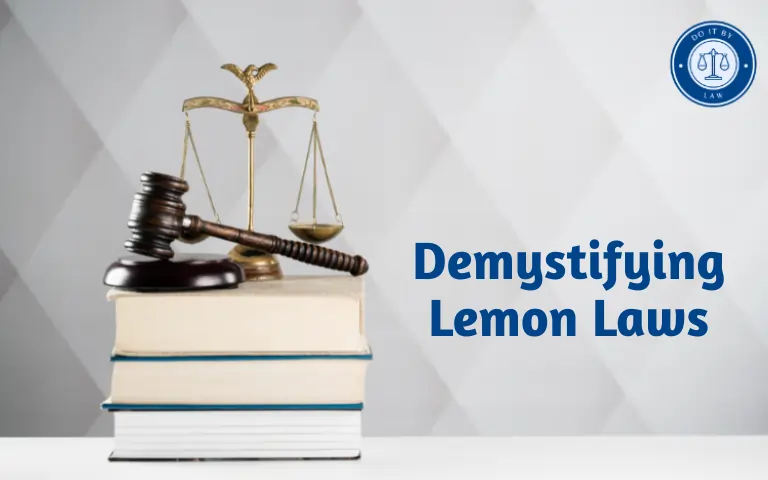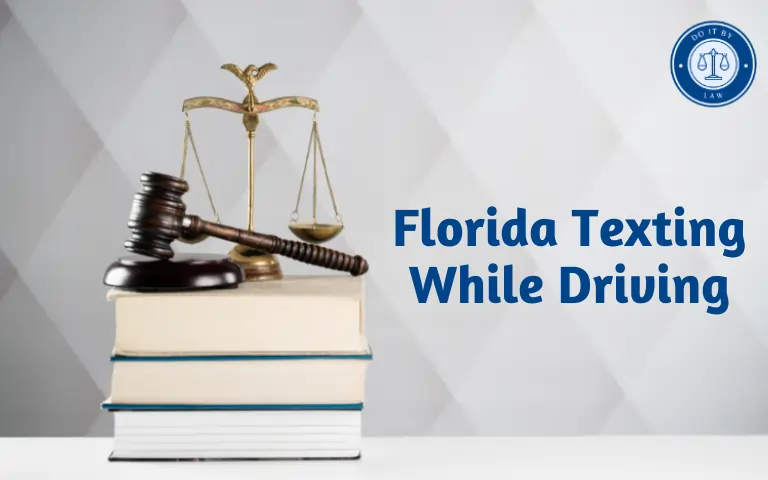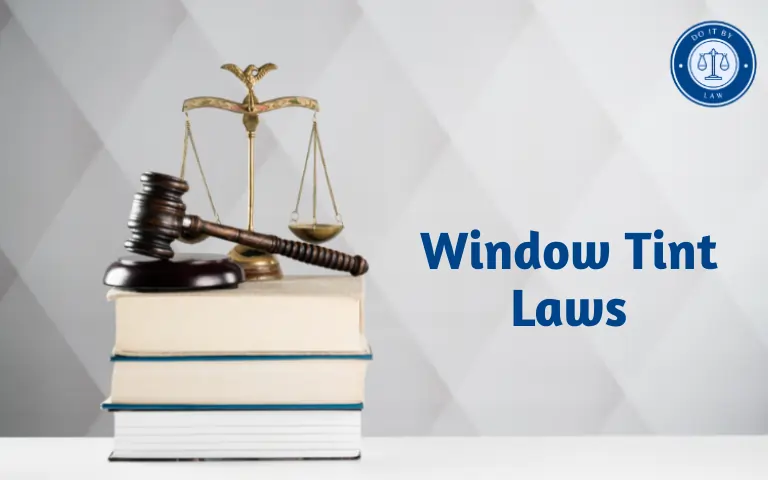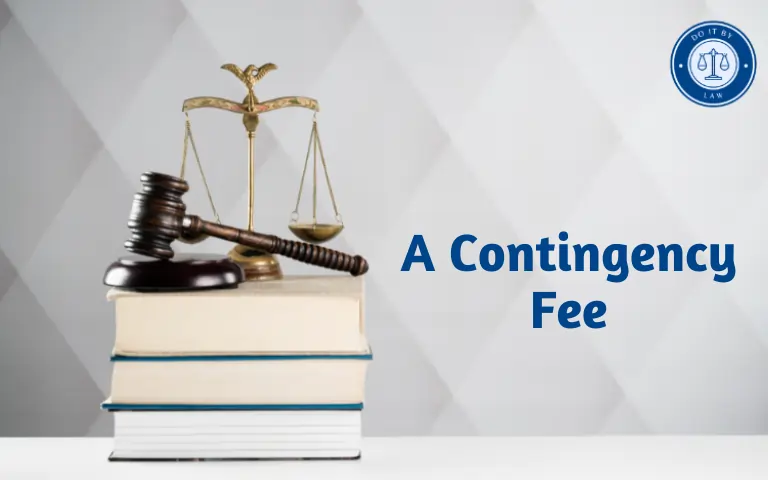Demystifying Lemon Laws: Your Guide to Consumer Protection
Lemon laws are regulations set by individual states to protect consumers who purchase defective vehicles, also known as lemons. These laws come into play when a new car has substantial problems that can’t be fixed after a reasonable number of repair attempts.
Lemon laws provide a remedy for purchasers who find themselves saddled with defective items. While the term “lemon” technically applies to various products, these laws predominantly focus on automobiles, motorcycles, and trucks.
In this blog post, we’ll delve into the origins, mechanics, and significance of Lemon Laws, shedding light on how they empower consumers and hold manufacturers accountable.
Definition of Lemon Laws
A Lemon Law is a civil law term that refers to a law that protects consumers when they purchase a vehicle or other item that fails to function as it should. These laws provide people with a remedy if they purchase certain items that do not meet the standards of performance expected of such an item. While technically, the term “lemon” could apply to a variety of products, these laws primarily apply to automobiles, motorcycles, and trucks.
Purpose and Importance
The primary purpose of lemon laws is to:
- Compensate Consumers: When a product—especially a motor vehicle—fails to meet expectations due to defects, lemon laws ensure that consumers are not left with a faulty or unusable item.
- Hold Manufacturers Accountable: Lemon laws place obligations on manufacturers and dealers to address defects promptly and adequately.
- Provide Legal Recourse: Consumers can seek legal remedies, including refunds, replacements, or repairs, if their product qualifies as a lemon.
- Boost Consumer Confidence: By knowing their rights under lemon laws, consumers feel more confident when making significant purchases.
Coverage and Scope (Vehicles and Beyond)
While lemon laws are most commonly associated with motor vehicles, they can extend to other goods as well:
- Vehicles: Lemon laws cover cars, trucks, motorcycles, and other motorized vehicles. If a new vehicle has significant defects that cannot be repaired within a reasonable time, lemon laws come into play.
- Beyond Vehicles: Some states’ lemon laws apply to appliances, electronics, boats, and even pet purchases. These laws vary by state and product type.

In our upcoming sections, we’ll delve deeper into the specifics of lemon laws, explore state variations, and discuss surprising applications beyond the automotive world. So, buckle up as we navigate the twists and turns of consumer protection!
State vs. Federal Lemon Laws
Both state and federal laws offer protection to consumers from defective vehicles, but they differ in some key ways:
Jurisdiction:
| Feature | State Lemon Laws | Federal Lemon Law (Magnuson-Moss) |
|---|---|---|
| Jurisdiction | Specific state | Nationwide |
| Coverage | Mainly vehicles | Various consumer products (if under warranty) |
| Defect Threshold | Set number of repairs or severe issue | Reasonable number of attempts to fix a substantial problem |
| Legal Remedies | Replacement, refund, attorney fees (varies by state) | Sue for damages, attorney fees (possible) |
- State Lemon Laws: Each state has its lemon law, and it only applies to vehicles purchased or leased within that state.
- Federal Lemon Law: The federal lemon law, known as the Magnuson-Moss Warranty Act, applies nationwide.
Coverage:
- State Lemon Laws: These laws typically focus specifically on vehicles, including new cars, trucks, SUVs, and sometimes motorcycles or motorhomes. Some states might extend coverage to certain used cars with written warranties.
- Federal Lemon Law (Magnuson-Moss): This law covers a wider range of consumer products, including vehicles, but only if they come with a written warranty.
Defect Threshold:
- State Lemon Laws: These laws often define a specific number of repair attempts (usually 3-4) for the same problem before a vehicle qualifies as a lemon. Some states consider the severity of the issue instead of a set number of repairs.
- Federal Lemon Law (Magnuson-Moss): There’s no specific requirement for repair attempts under federal law. However, you’d need to demonstrate a reasonable number of attempts to fix a substantial problem.
Legal Remedies:
- State Lemon Laws: These laws generally offer stronger remedies for consumers. Depending on the state, you might be entitled to a replacement vehicle, a full refund (minus mileage deductions), or attorney fees.
- Federal Lemon Law (Magnuson-Moss): This law allows you to sue for damages caused by the warranty breach, but it doesn’t guarantee a replacement vehicle or refund. It might also cover attorney fees.
In Short:
- State lemon laws offer stronger protections specifically for vehicles, even if used with a warranty.
- The federal lemon law (Magnuson-Moss) provides a broader safety net for various warranted products, but the remedies might be less favorable for vehicles compared to state laws.
How do Lemon Laws work?
Lemon laws exist to protect consumers who buy new vehicles that turn out to be defective, often referred to as lemons. Here’s a breakdown of how they typically work:
Qualifying for Lemon Law Protection:
- Vehicle Coverage: The vehicle must be covered under the manufacturer’s warranty and typically be a new car, truck, motorcycle, or sometimes a motorhome. Used cars generally aren’t covered.
- Defect Severity: The problem must be substantial enough to affect the vehicle’s safety, value, or use. This could be:
- A recurring issue the manufacturer can’t fix after a certain number of attempts (usually 3-4 tries).
- A single critical problem that makes the vehicle unsafe or unusable.

The Lemon Law Process:
- Documentation: Keep all repair records, receipts, and communication with the manufacturer regarding the issue.
- Repair Attempts: Take the vehicle to an authorized dealer for repair attempts under the warranty.
- Lemon Law Notification: Once you meet the repair attempt threshold or the severity criteria, consult your state’s lemon law department or a lawyer specializing in consumer law. They can guide you on filing a formal complaint with the manufacturer.
- Manufacturer Response: The manufacturer will likely investigate your claim and may attempt further repairs or offer a settlement.
- Arbitration or Court: If negotiations fail, some states allow lemon law claims to go through arbitration (a binding decision by a neutral third party). If arbitration isn’t available or unsuccessful, you might have the right to sue the manufacturer in court.
Possible Outcomes:
- Replacement Vehicle: The manufacturer replaces your car with a comparable model.
- Full Refund: You receive a full refund for the purchase price, minus mileage deductions in some states.
- Cash Settlement: The manufacturer offers a cash settlement to compensate for the lemon.
Manufacturer’s Obligations in Lemon Law
Under lemon laws, the manufacturer is usually held responsible for compensating the consumer when they purchase a defective “lemon” vehicle. These obligations can vary depending on the state, as each state has its own rules and regulations. However, in general terms, here are the manufacturer’s key obligations under lemon laws:
- Repair Obligations:
- The manufacturer must attempt to repair the defect within a reasonable number of attempts.
- Repairs must be made even after the Lemon Law warranty period has expired, provided the consumer reported the issue within the specified time window.
- Replacement or Refund:
- If reasonable repair attempts fail, the manufacturer is obligated to either:
- Replace the defective vehicle with a comparable one.
- Accept a return of the vehicle from the consumer.
- The choice between replacement and refund is up to the consumer.
- If reasonable repair attempts fail, the manufacturer is obligated to either:
- Reimbursement:
- If the lemon vehicle is returned, the manufacturer must reimburse the consumer.
- The reimbursement typically includes factors such as the full contract price, non-refundable portions of warranties, collateral charges (license fees, registrations), finance charges incurred after reporting the issue, and other related costs.
Remember that specific details may vary significantly by location and case. It’s essential to research your local lemon laws and consider consulting a consumer or lemon law attorney to ensure you follow the proper steps in claiming the manufacturer.
Consumer Remedies in Lemon Law
Consumer remedies are options available to consumers who have been wronged in a marketplace transaction. These remedies can come into play when a product or service is defective, falls short of advertised claims, or is otherwise problematic.
Here’s a breakdown of some common consumer remedies:
- Repair or Replacement: This is a common remedy for defective products under warranty. The manufacturer or seller is obligated to fix the product or provide a replacement.
- Refund: Consumers may be entitled to a full or partial refund depending on the situation. This could apply to situations like product returns, service cancellations, or scams.
- Price Adjustment: If a product is significantly different from what was advertised, a price adjustment might be a remedy. For instance, if a product is missing features or doesn’t perform as advertised, you might be entitled to a partial refund reflecting the difference in value.
- Damages: In some cases, consumers may be able to recover damages beyond just the purchase price. This could apply to situations where a defective product caused injury or property damage.
- Rescission of Contract: This allows a consumer to cancel a contract and get a full refund if certain conditions are met, such as misrepresentation or fraud.
How to Seek Consumer Remedies:
The specific steps to take will vary depending on the situation and the type of remedy sought. Here are some general pointers:
- Gather Documentation: Keep receipts, invoices, contracts, and any communication regarding the issue.
- Contact the Seller: First, try to resolve the issue directly with the seller or manufacturer. Many businesses have customer service departments set up to handle these situations.
- File a Complaint: If contacting the seller doesn’t work, consider filing a complaint with a consumer protection agency or regulatory body. These agencies can mediate disputes and enforce consumer protection laws.
- Consider Arbitration or Litigation: In some cases, arbitration (a binding decision by a neutral third party) or litigation (filing a lawsuit) might be an option. This route is usually advisable to consult with a consumer lawyer familiar with your situation and local laws.
Remember, consumer protection laws and available remedies can vary by location. The resources listed above can be helpful starting points to explore your options.
The Role of Magnuson-Moss Warranty Act
The Magnuson-Moss Warranty Act, enacted in 1975, is a federal law in the United States that plays a key role in consumer protection related to warranties on various products. Here’s a breakdown of its main functions:
Warranty Disclosure and Clarity:
- Requires manufacturers and sellers of consumer products to provide clear and easy-to-understand language regarding warranty coverage.
- Warranties must disclose whether they are “full” warranties or “limited” warranties.
- It prohibits deceptive warranty practices and ensures consumers know exactly what’s covered before they buy.

Consumer Rights and Options:
- Enables consumers to choose between a full warranty (covering defects in materials and workmanship) or a limited warranty (with specific exclusions).
- Makes it illegal for companies to require consumers to waive implied warranties (warranties that are not explicitly stated but are considered inherent, like a product being fit for its intended purpose) as a condition of a written warranty.
- Provides consumers with a legal basis to sue manufacturers or sellers for breaching warranty agreements. This can help ensure repairs are made or a replacement product is provided as promised under the warranty.
Dispute Resolution:
- Encourages manufacturers to establish informal warranty dispute resolution mechanisms. This can provide a faster and less expensive way for consumers to resolve warranty claims compared to litigation.
Important Note:
- The Magnuson-Moss Warranty Act applies only to written warranties offered by manufacturers and sellers. It doesn’t cover verbal guarantees or warranties on services.
In essence, the Magnuson-Moss Warranty Act empowers consumers by:
- Promoting transparency in warranty terms.
- Guaranteeing certain consumer rights related to warranty coverage.
- Providing legal recourse in case of warranty breaches.
While the Magnuson-Moss Warranty Act offers a significant layer of protection, it’s important to remember that:
- It doesn’t guarantee a specific outcome in a warranty dispute.
- For stronger protections specifically for vehicles, many states have their lemon laws that can provide additional rights and remedies.
Conclusion
As we navigate the complex world of consumer rights, lemon laws stand as a beacon of protection for those who find themselves grappling with defective vehicles. Let’s recap the key takeaways:
- Advocacy for Consumer Rights:
- Lemon laws empower consumers to demand fairness and accountability from manufacturers.
- By enforcing obligations, lemon laws ensure that defective products do not go unaddressed.
- Future Trends:
- As technology evolves, so do the challenges faced by consumers. Future trends may include:
- Electric Vehicles (EVs): Lemon laws will adapt to address unique issues related to EVs.
- Software and Connectivity: Ensuring that software glitches and connectivity problems are covered.
- Sustainability: Balancing consumer rights with environmental concerns.
- As technology evolves, so do the challenges faced by consumers. Future trends may include:
Remember, knowledge is your best defense. Stay informed, know your rights, and seek legal guidance when navigating the complexities of lemon laws.




